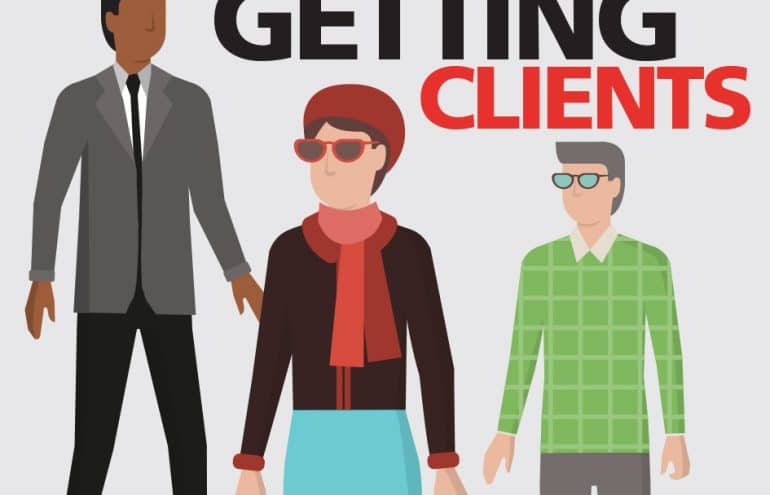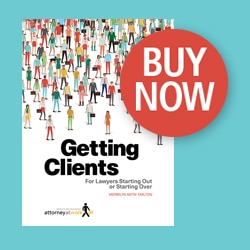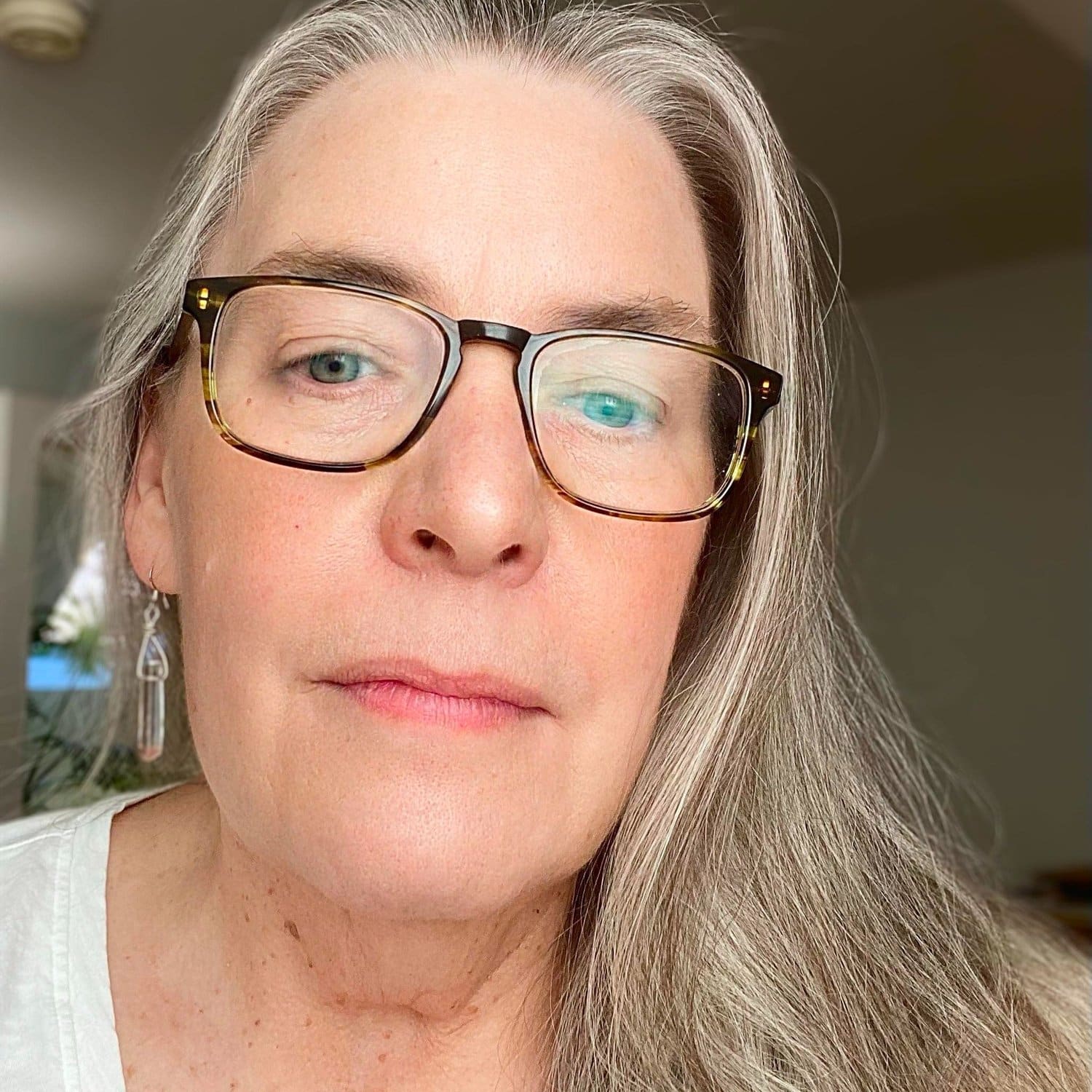If you are like most lawyers, you spend more time worrying about where your next client will come from than you’d like. It’s natural. Even the busiest, most successful lawyers work hard at marketing and business development — they just make it look easy.
Stage Directions for Better Business Development
But, back to “worrying” about it.
When approaching any activity that makes us feel uncertain, one of the things we humans do is play the tapes in our heads over and over again, imagining what we will do, what we’ll say, and how it will go. Envisioning it can be nearly as effective as actually doing it in terms of creating a permanent pathway in your brain that guides your behavior. So, before you start running those tapes, here are a few king things to remember about business development. Stage directions, if you will.
1. It’s not about you.
It is natural when faced with a sales opportunity to think in terms of “telling.” You want to tell a prospect about your legal experience, where you were educated, who your clients are. Sure, that information may be relevant at some stage in the relationship, but it’s nowhere near as important as “asking.” So, begin any encounter with a prospect by asking questions — about who they are, where they came from, what keeps them up at night, what they are looking for in a lawyer, what sort of outcome they want. Then you’ll know what this particular prospect needs to learn about you, and you’ll be spot on when you shift into telling.
2. Stick around for the answers.
Some say that lawyers aren’t particularly good at listening. You are probably the exception that proves that rule. But even so, it’s important to listen well enough that, in your own half of the conversation, you can repeat back some of the information you were given. Things like, “You say you’ve tried repeatedly to get this man to move out. Have you tried an eviction notice?” or “What was it about that prior lawyer that made you so obviously negative about lawyers?” This will help you understand better what those potential clients are looking for and make them feel you see them as important enough to really listen to.
3. It’s not always about what they say it’s about.
Trial lawyers encounter this all the time. The client hires you to sort out a family legal conflict, but somewhere in the process it becomes clear that what they really want is to make their brother-in-law (or wife, partner, whomever) suffer. Unfortunately, along the road to figuring this out, you suffer, too. So, back to No. 1 — ask those questions! Maybe they want to impress you (or at least not embarrass themselves), so they say they want “the best there is,” but in reality, their ultimate decision about who to hire will be based on price. That is great information to have because then you know to emphasize how you will structure the work to save them money while getting the outcome they seek.
4. Actions speak louder than words.
Think about the unspoken messages you send with your appearance and behavior. People draw all kinds of conclusions (many of which will be true) based on your clothing, hygiene, manners and more. If you show up at a formal dinner wearing soup stains on your tie or scarf, they will assume you aren’t very fastidious about your legal work. Cough or sneeze without covering your mouth and it’s a pretty safe bet, in the client’s mind, that you think more about yourself than your client’s welfare. But offer thoughtful suggestions and make personal introductions to someone they value and they will assume you are a helpful person — the type of person they’d like to have as their lawyer. So, keep an eye on what you say and what you do.
5. You have to hang out where the right people are.
You’ve already done the work to define your target market and ideal client, right? (If you haven’t, hop on that right now. Having a firm grip on this will make business development a lot more efficient!) If you do estate planning for high-net-worth individuals, it won’t do you much good to network at the baseball game — unless it’s professional ball and you can entertain on the suites level. If your specialty is environmental regulation of petroleum fields, there is a greater chance of getting to know the right people at your local oil and gas association luncheons than at the state bar’s lunch-and-learn. The same is true for virtual hang outs. Follow the right people and groups on Twitter, Facebook and LinkedIn. Engage in discussions, suggest topics and make connections.
These are simple things — but easily forgotten. Try selecting one of the above five to focus in on next time you run the mental tapes. Heck, do it in the real world and see what happens!
Illustration ©iStockPhoto.com


















